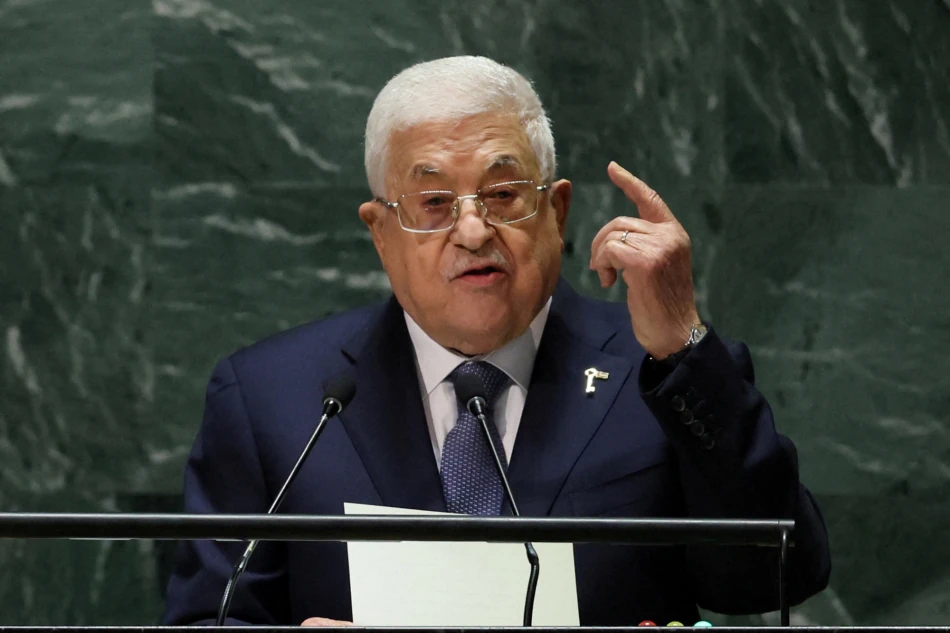
Palestinian President to Address UN Virtually After US Denies Visa Access
UN General Assembly Grants Palestinian President Virtual Access After US Visa Denial
The United Nations General Assembly has authorized Palestinian President Mahmoud Abbas to participate virtually in next week's annual meetings in New York, after the United States denied him a visa. The decision highlights growing tensions between Washington's diplomatic restrictions and the UN's commitment to inclusive representation, particularly as multiple nations are expected to formally recognize Palestinian statehood during the sessions.
Mass Visa Denials Target Palestinian Delegation
The US rejection extends far beyond Abbas himself. Washington has refused to grant visas to approximately 80 Palestinians who were scheduled to participate in the General Assembly meetings. This sweeping denial represents one of the most significant diplomatic obstacles faced by Palestinian representatives in recent years, effectively blocking their physical presence from crucial international discussions.
The timing appears particularly strategic, as several countries are anticipated to announce formal recognition of Palestinian statehood during these sessions—a development that could shift international diplomatic momentum.
Historical Context of US-Palestinian Diplomatic Relations
This visa denial reflects the broader deterioration in US-Palestinian relations that has accelerated since the Trump administration's policies and continued under current leadership. The US has historically used its position as UN host nation to control access to international forums, previously denying visas to Iranian officials and other representatives from nations with strained bilateral relations.
The move echoes similar restrictions imposed during previous diplomatic crises, where the US leveraged its hosting privileges to influence UN proceedings indirectly.
Implications for International Recognition
Momentum for Palestinian Statehood
The anticipated recognition announcements during the General Assembly could represent a significant diplomatic breakthrough for Palestinian leadership. Several European and Latin American nations have signaled intentions to formalize their recognition, potentially creating a cascade effect that pressures other countries to clarify their positions.
Virtual Participation as Precedent
The UN's accommodation through virtual participation sets an important precedent for future diplomatic disputes. This solution demonstrates the organization's ability to adapt when host nation restrictions conflict with inclusive representation principles, potentially serving as a model for similar future conflicts.
Strategic Calculations Behind the Restrictions
The US visa denials likely serve multiple strategic purposes beyond simple bilateral tensions. By limiting Palestinian physical presence, Washington may be attempting to reduce the diplomatic impact of recognition announcements and limit networking opportunities that could strengthen Palestinian international relationships.
However, this approach risks backfiring by generating sympathy for Palestinian representatives and highlighting perceived US obstruction of international diplomatic processes. The virtual participation format may actually amplify global attention on Palestinian positions rather than diminishing their influence.
Looking Ahead: Diplomatic Consequences
These developments signal a potential shift in how international recognition of Palestinian statehood might unfold—through multilateral forums rather than bilateral negotiations. The General Assembly sessions could mark a turning point where diplomatic recognition accelerates independently of US-mediated peace processes.
For Palestinian leadership, the virtual participation represents both a diplomatic victory in maintaining their voice and a stark reminder of the practical limitations they face in international engagement. The contrast between UN accommodation and US restrictions may ultimately strengthen arguments for Palestinian inclusion in future international discussions.
Most Viewed News

 Sara Khaled
Sara Khaled






